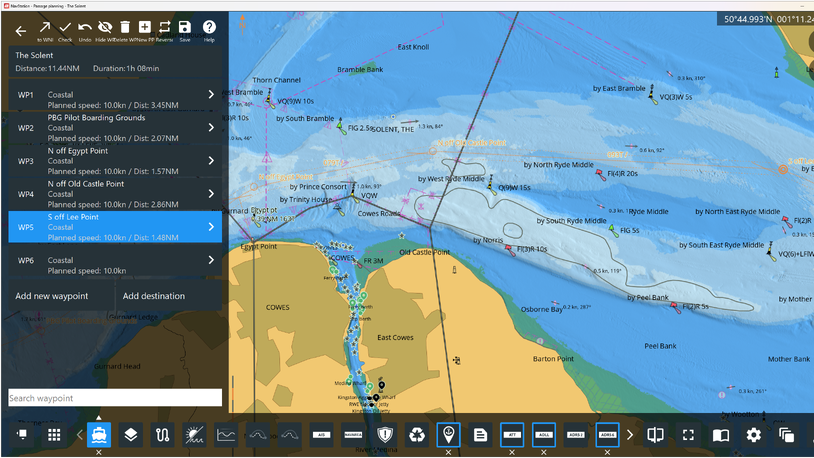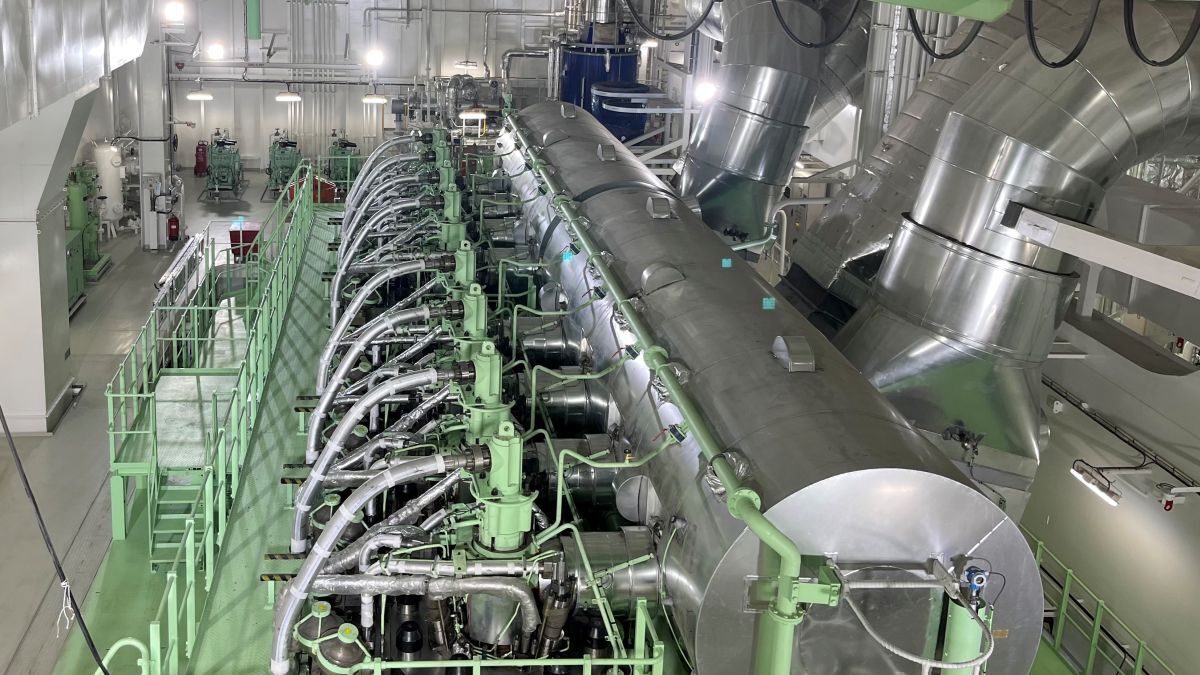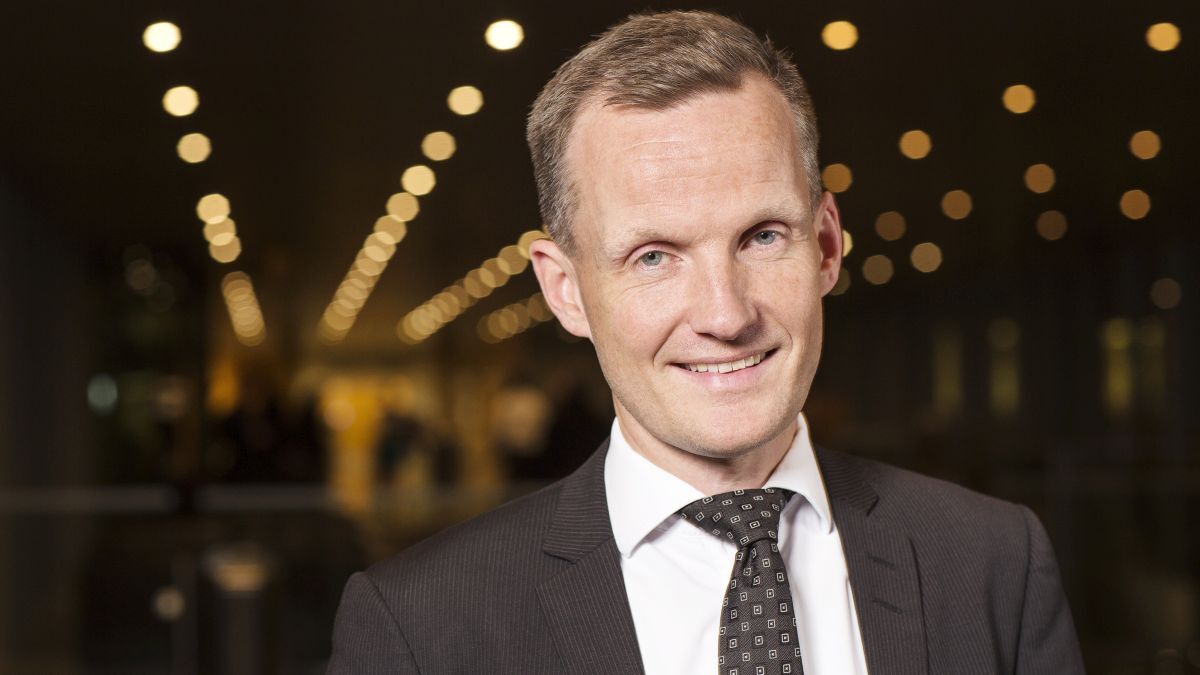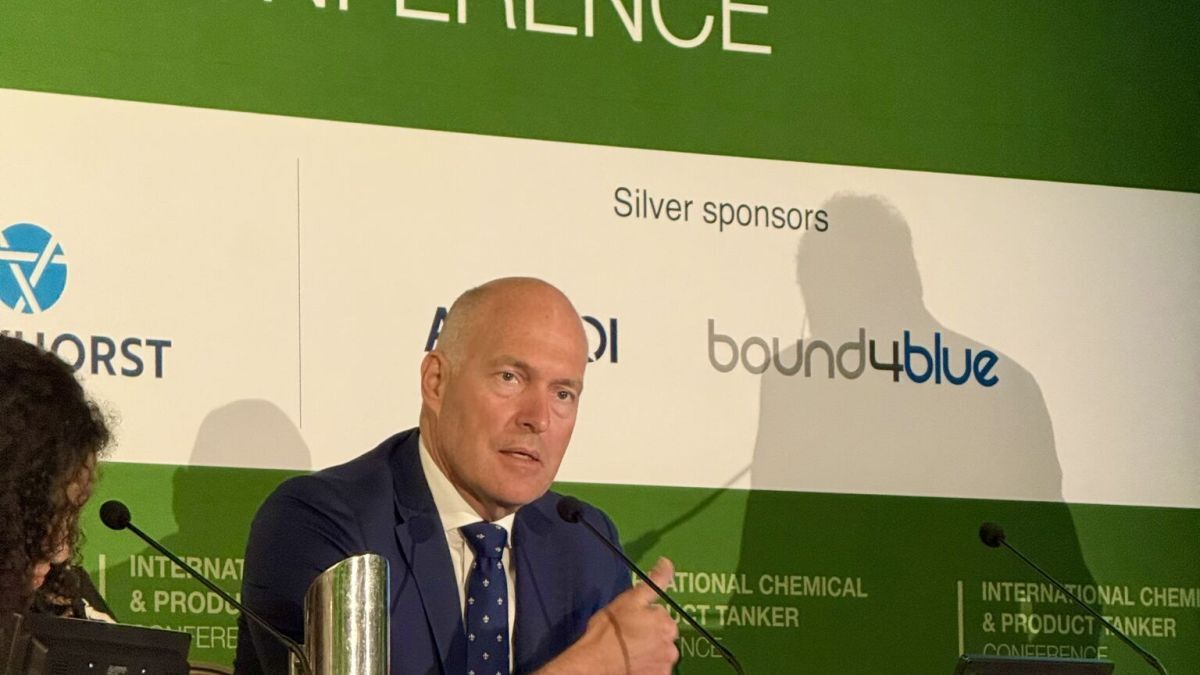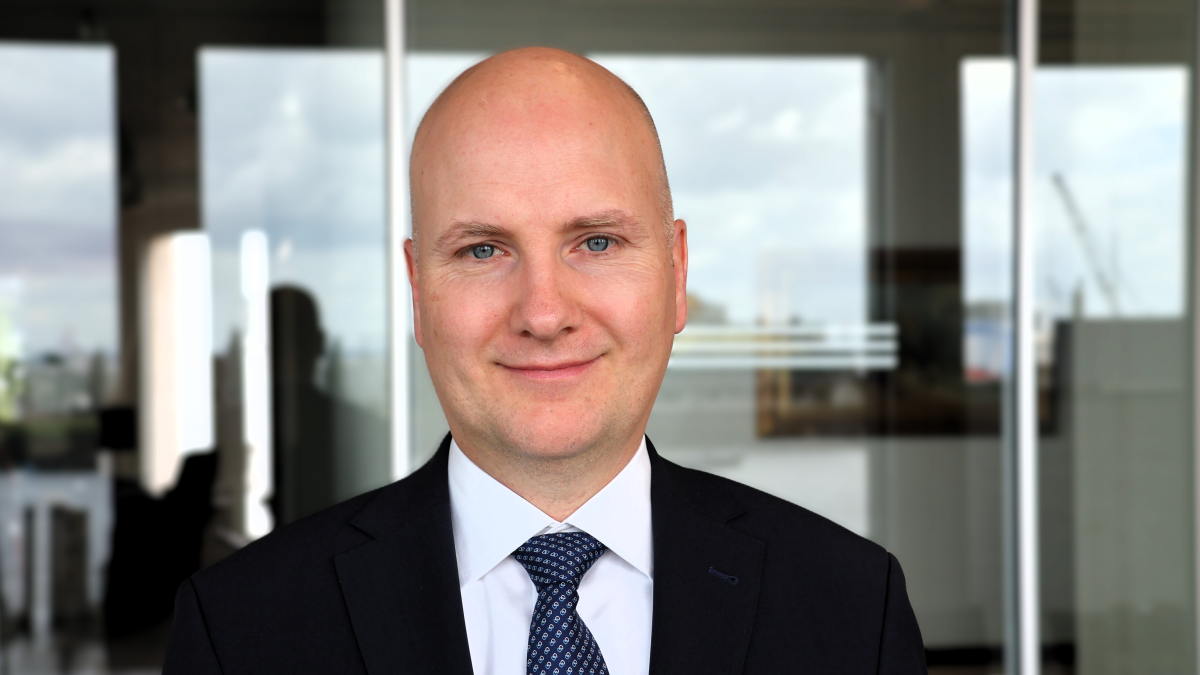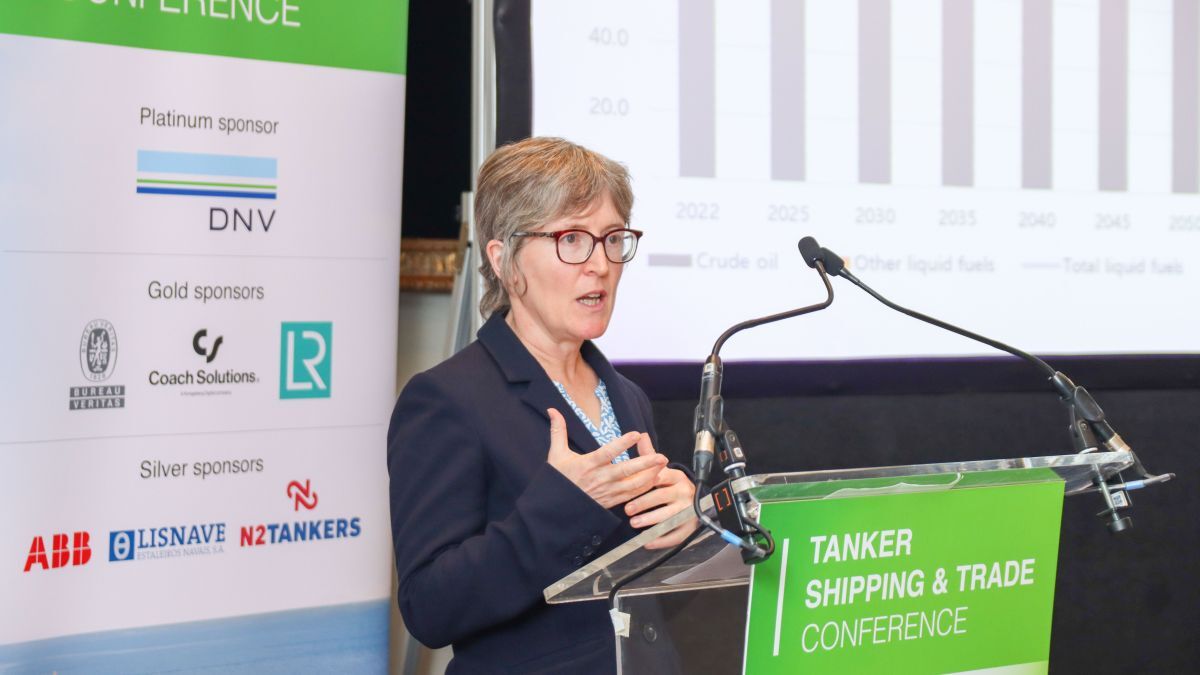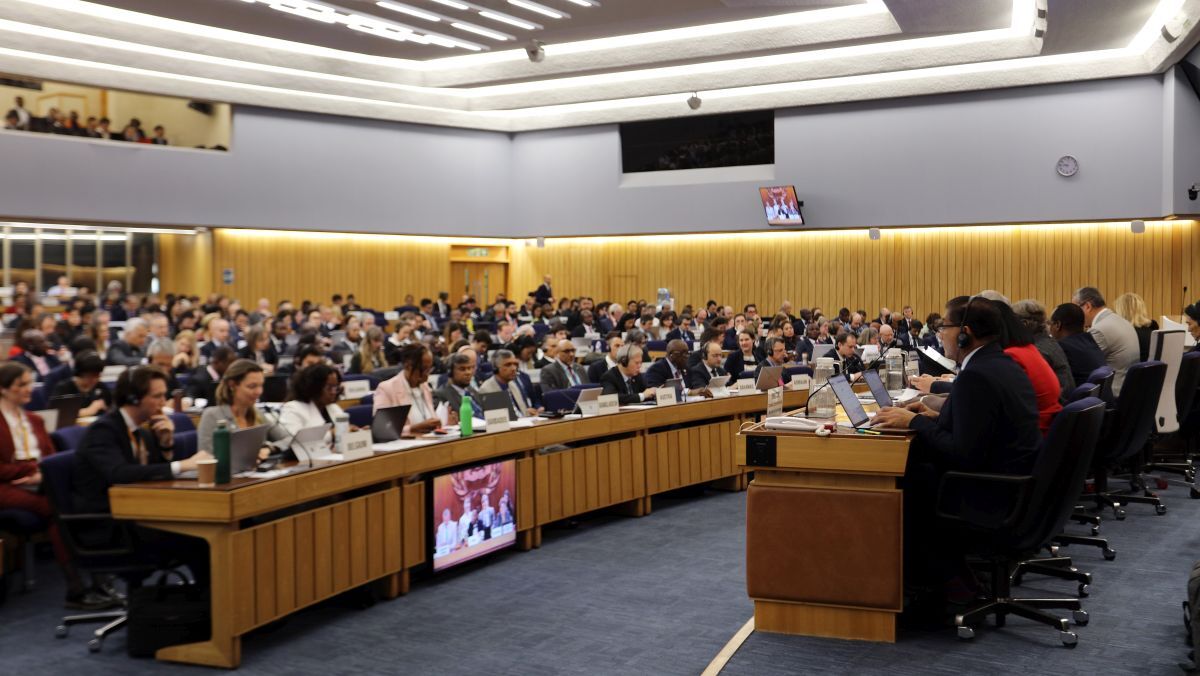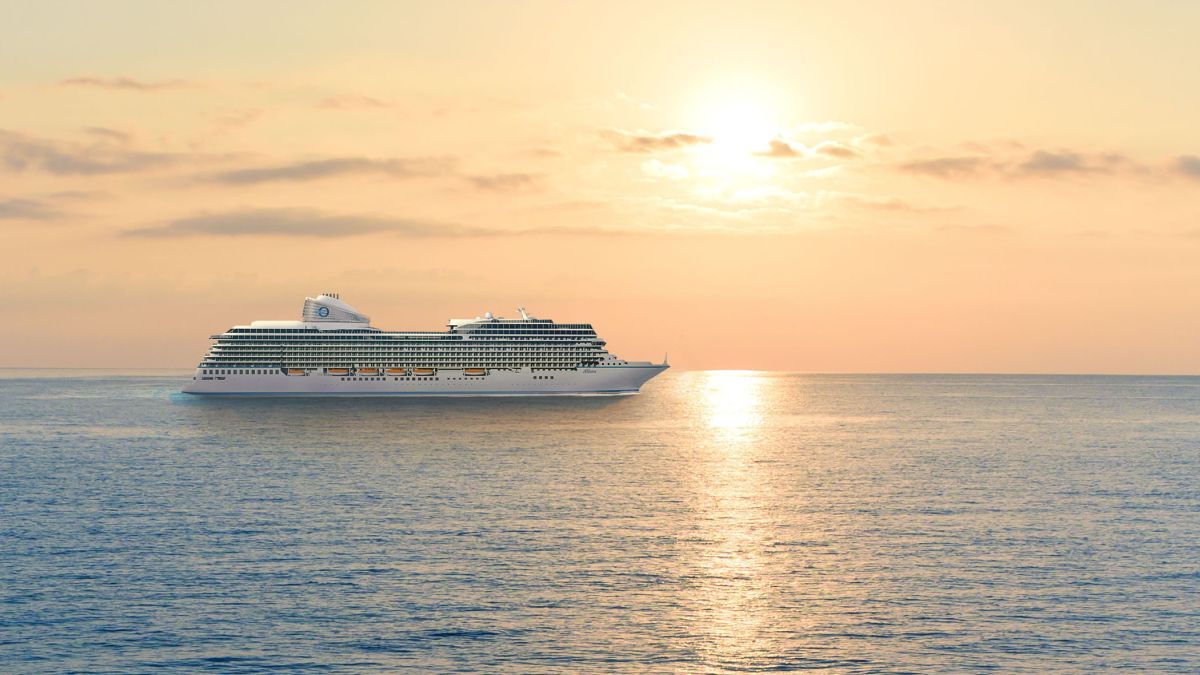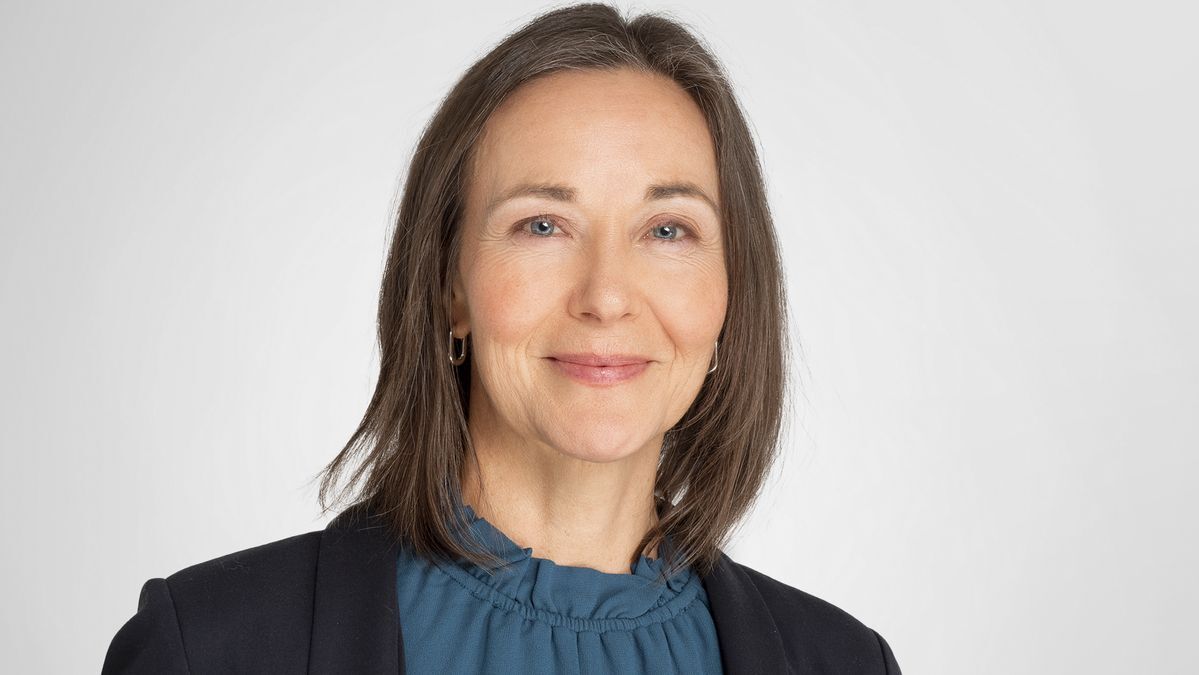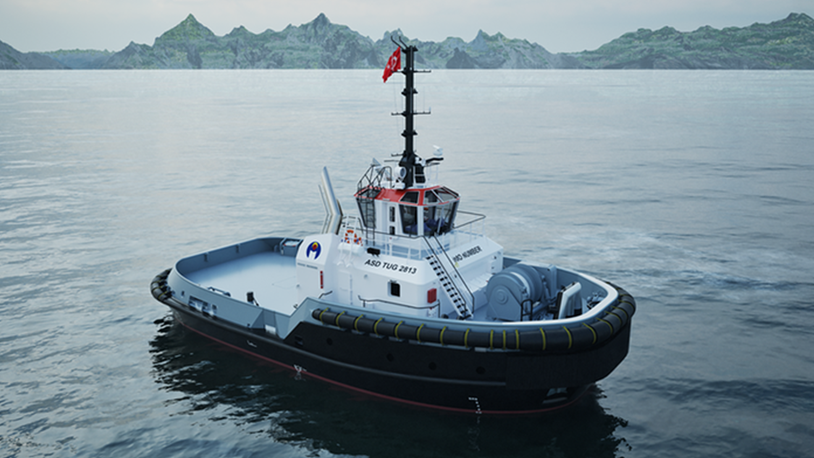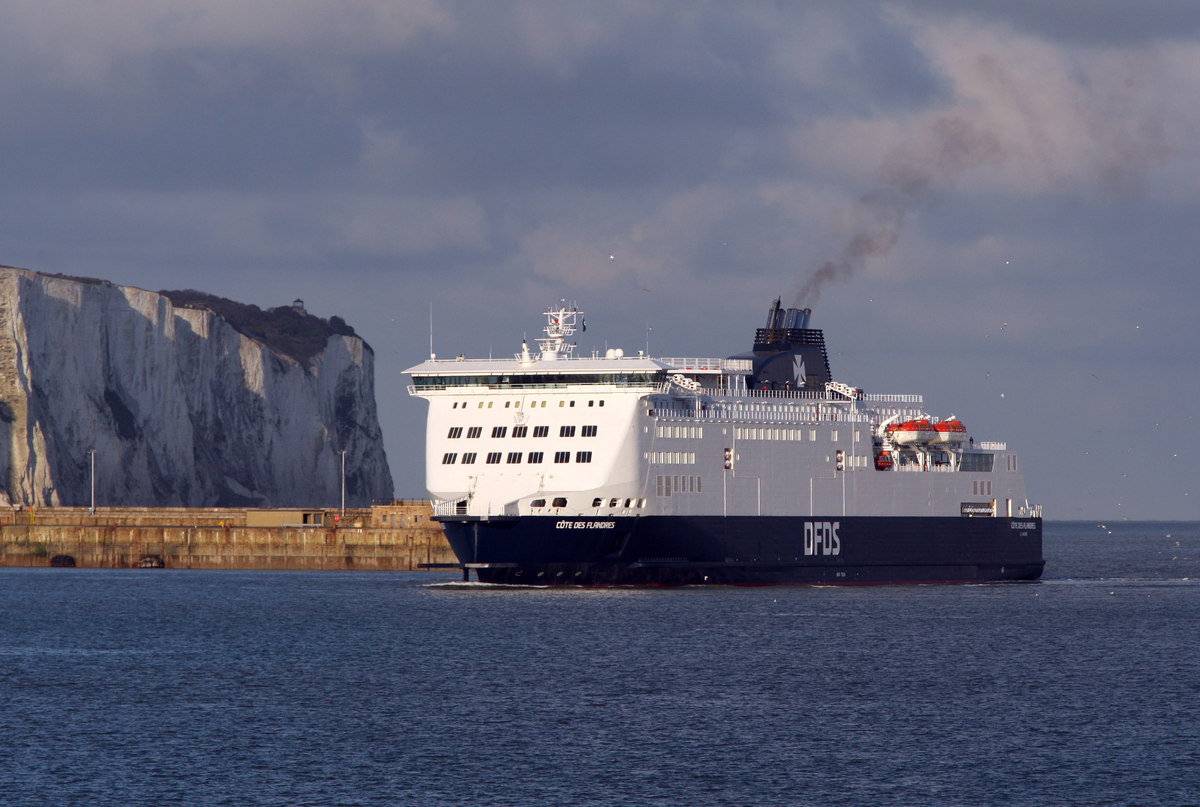Business Sectors
Events
Contents
Register to read more articles.
Maersk on methanol and adding biomethane to the mix
Maersk head of energy transition Morten Bo Christiansen explains Maersk’s fuel choices
Maersk has added more fuels to its portfolio – from an initial focus on methanol, it was announced last year that it will renew its fleet with between 50 and 60 vessels own orders and charter contracts adding dual fuel methane propulsion to the mix.
Speaking on the eve of the delivery of Alexandra Maersk in October, to a select group of journalists, Maersk head of energy transition Morten Bo Christiansen explains: “We have 800,000 TEU worth of new ships on order, 300,000 TEU to own ourselves and 500,000 TEU to be time charters. They will be a mix of methanol and methane. I can understand if that comes as a bit of a surprise now – why is that, what has changed? [people might ask] Are you now indulging LNG as a decarbonisation fuel?”
Since the initial announcement, Maersk has stated that their owned share of the fleet renewal is 20 vessels that are registered as dual fuel methane propulsion systems and vary in size from 9,000 to 17,000 TEU. However, Maersk confirms that while technically being registered as dual-fuel vessels with liquified gas propulsion systems, the vessels include options to convert the propulsion system to dual-fuel methanol. The potential utilization of the options is highly dependent on the development of the regulatory environment for the shipping industry.
The first vessels will be delivered in 2028, and the last delivery will take place in 2030.
Mr Christiansen explains that Maersk has not changed its stance on LNG. “I think it’s very important to distinguish between fossil methane (LNG) and the green version – bio- or e-methane. When it comes to fossil LNG our position has not changed at all. It’s another fossil fuel and it will never solve the climate problem for us. It can reduce emissions by 10-20% - that’s it. We are not endorsing LNG as a decarbonisation fuel because it’s not.”
With yesterday’s (April 7) start of the MEPC session in London, Mr. Christiansen emphasises the need for the upcoming IMO regulations to be fuel agnostic and to support a multifuel future. “While we applaud the progress in the IMO, there is a risk that the current fuel standard proposal will financially favor fossil LNG. We need all alternative fuels to reach shipping’s climate targets,” he warns. The math applied in current IMO proposals has an unintentional consequence as it is not fuel-agnostic and favouring the liquified natural gas, he says. “It could make the principle of pay-to-pollute the financially most attractive strategy for most shipping companies the next decades.”
What Maersk has changed its perspective on is biomethane. “We’ve always known that the future of shipping needs to focus on a multi fuel future. We have known this all along even if we’re always seen as pioneers of methanol. We’ve known one day ammonia will come and this is expected that to be a really good candidate.”
A couple of years ago we de-selected biomethane, from a production perspective, because it is less scalable than green methanol - that was our prediction from our analysis back then.”
He explains that the supply chain is better for methanol as being a liquid it means that the logistics chain is very simple and thirdly, the company was concerned about methane slip.
But things have since changed, As Mr Christiansen says: “What we have learned is that scalability is probably more than we thought back then.”
The carrier spoke to other parties including the Copenhagen based decarb think tank Mærsk Mc-Kinney Møller Center for Zero Carbon Shipping.
Mr Christiansen says: “It is not a magic bullet, but it is much more available in Europe, where we have difficulty finding cost-competitive green methanol which should still be the better scalable fuel option.“
“We do now believe that biomethane is going to play a meaningful role in the future fuels mix and we feel we need an exposure so that we can tap into that market.”
While the supply chain is still much more complex, when it comes to the methane slip he said they have seen some good progress.
He expands: “This is not a pivot away from methanol, it is a portfolio move to get a wider mix of green fuels. With ambitious regulations in place, in 10 years, it is likely that ammonia will be in the mix as well and we want a portfolio where we can optimise our fuel mix and abatement costs, providing better costs for ourselves and for our customers.”
Nevertheless, despite this portfolio move, he says that Maersk still thinks green methanol looks the most promising candidate towards 2030. “We expect some biomethane but to still be relying mostly on green methanol.” A large chunk of Maersk’s portfolio is likely to be green methanol towards 2030, he says, and then by 2040 ammonia is likely to be there as well.
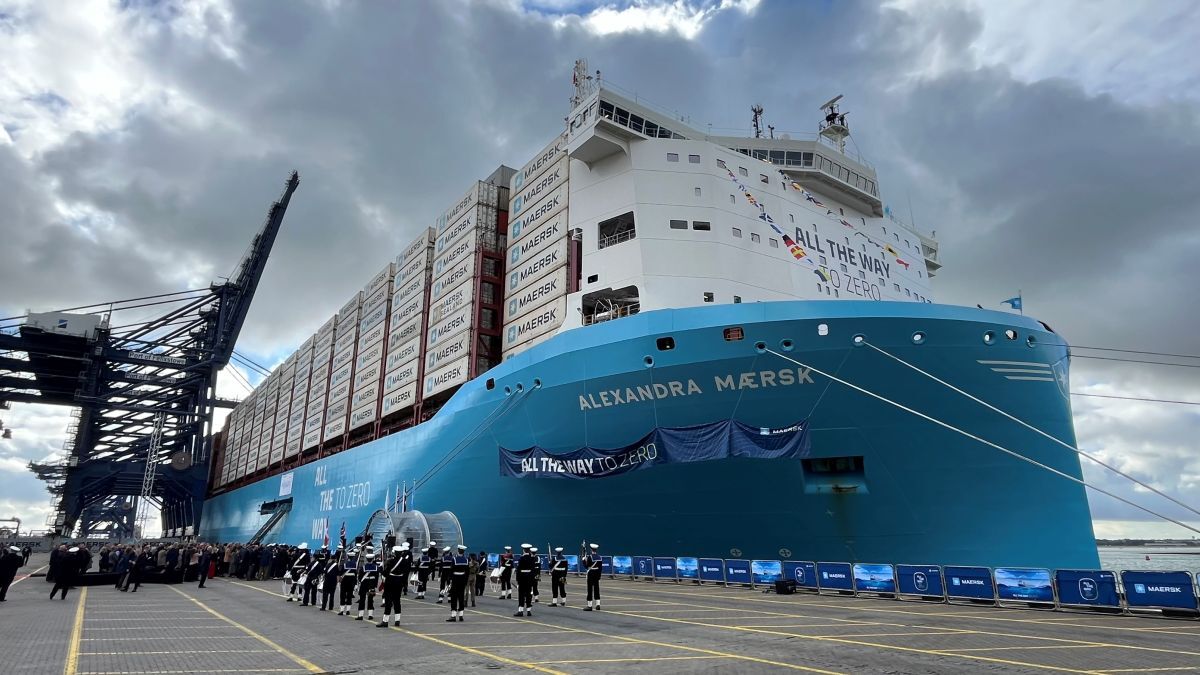
Alexandra Maersk christened
Maersk chief executive Vincent Clerc calls on International Maritime Organization (IMO) to hasten fuel price parity, as the company names its latest dual-fuel methanol ship.
UK Maritime Minister Mike Kane, representatives of IMO, customers and Maersk employees joined the event to christen Maersk’s methanol dual-fuel box ship at the Port of Felixstowe, UK.
Primark, one of Maersk’s customers and logistics and sustainability partners, saw its people and culture director Elaine Condon act as the vessel’s godmother.
Alexandra Maersk is the sixth vessel in Maersk’s owned fleet able to sail on methanol in its main and auxiliary engines and the fifth ship in a series of 18 large dual-fuel methanol vessels scheduled for delivery in 2024 and 2025. Each of the line’s large dual-fuel methanol vessels can carry more than 16,000 standard containers (TEU).
“Through our partnership with Maersk, we have started to introduce green fuel alternatives, such as biofuel, when shipping our products. By using Maersk’s ECO Delivery Ocean product and replacing fossil fuels with green fuel alternatives on Maersk’s cargo ships, we are reducing greenhouse gas (GHG) emissions in our ocean shipping," Primark chief executive Paul Marchant said, noting the company’s stated ambition to halve its carbon emissions across the value chain by 2030.
Maersk’s ECO Delivery Ocean is based on reduced GHG emissions fuels such as biodiesel and green methanol.
The line reiterated that methanol remains at the core of Maersk’s decarbonisation plans. Low-emissions methanol can reduce GHG emissions in ship operations by 65% to 90%, as compared with conventional fossil fuels such as bunker oil, calculated on a lifecycle basis. The wide range for potential emissions reductions indicates the importance of the feedstock and production process for the methanol fuel.
Morten Bo Christiansen (Maersk)
Morten Bo Christiansen joined AP Moller-Maersk in 2011 and has held several roles within strategy development and execution, and operations. He has a background as an engineer and management consultant and holds an MSc and a PhD in structural engineering from The Technical University of Denmark. Since 2021, he has been leading the decarbonisation team, which is responsible for setting the vision, developing relevant expertise and roadmaps, and enabling the execution of the path for AP Moller-Maersk to achieve net-zero GHG emissions by 2040. The team is managing the green transformation of all business segments of Maersk to a net-zero set-up by 2040 which includes ocean, air freight, warehousing and distribution, terminals and other activities. Besides driving innovation together with other internal and external stakeholders, his team is also in charge of buying the needed fuel for Maersk, which makes an annual bill of US$6-8Bn.
Riviera’s Marine Fuels Webinar Week will be held from the week commencing 7 April 2025. Click here to register for this free-to-attend event.
Related to this Story
Women in Maritime Today: Elin Saltkjel says no day working in maritime is dull
Events
Maritime Environmental Protection Webinar Week
Cyber & Vessel Security Webinar Week
The illusion of safety: what we're getting wrong about crews, tech, and fatigue
Responsible Ship Recycling Forum 2025
© 2024 Riviera Maritime Media Ltd.

